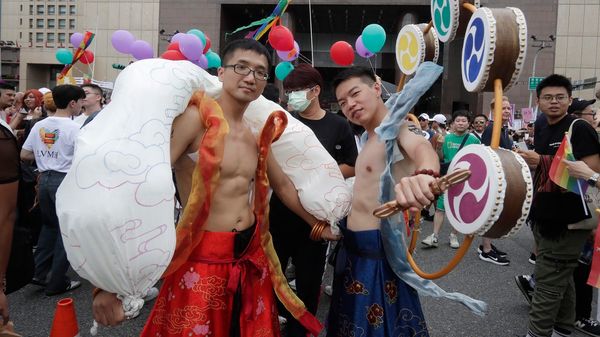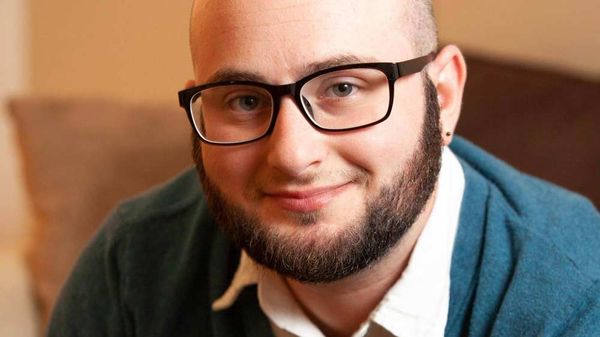November 9, 2007
Patrick to revive hate crimes task force
Michael Wood READ TIME: 5 MIN.
Kevin Burke, secretary of the Executive Office of Public Safety and Security (EOPSS), announced Nov. 2 that Gov. Deval Patrick plans to reconvene the defunct Governor's Task Force on Hate Crimes, a body that was disbanded in 2003 by his predecessor, Mitt Romney. Burke made his announcement during a joint meeting of the Greater Boston Civil Rights Coalition (GBCRC) and the Massachusetts Association of Human Rights and Relations Commission (MAHRC) held at the headquarters of the Citizens' Housing and Planning Association. Burke told the group of about 30 people attending the meeting, representing a mix of Jewish and LGBT civil rights groups, municipal human rights commissions, the American Civil Liberties Union, Norfolk District Attorney William Keating's office, Boston Public Schools, and state Reps. Carl Sciortino and Denise Provost, among others, that while the Patrick administration is still working out the details behind the structure of the new body, it will build on the work of the prior task force.
"The good news is that you don't have to reinvent the wheel. You have to get the wheel moving forward again," said Burke.
According to Don Gorton, co-chair of the former Governor's Task Force on Hate Crimes from 1991-2003 and chair of the Gay and Lesbian Anti-Violence Project, the original task force was established in 1991 by Gov. William Weld's administration under prompting from the Anti-Violence Project, the Anti-Defamation League and the Jewish Community Relations Council. The original mission of the task force was to develop guidelines for the implementation of the state's hate crimes law, and over the years it worked to inform municipalities and police departments of their responsibility for reporting hate crimes. In 1998 the task force expanded its efforts to target the root causes of hate crimes, launching a Student Civil Rights Project to target bigotry among the state's school-aged children. That project included the formation of civil rights teams in high schools across the state and the launch of an annual Stop the Hate Week initiative. In its final years the task force advised law enforcement on the dangers of heightened anti-Muslim hate crimes after 9/11 and worked to develop a state anti-bullying curriculum. In 2003 Romney cut funding to the task force, effectively disbanding it.
Burke said the new task force will likely fall under EOPSS but will include the input of secretaries across a number of departments in the administration. He said Patrick will appoint commissioners and that its membership will include representatives from many of the communities whose members are frequent targets of hate crimes, although he declined to say specifically what the selection process will entail. He said one key question the Patrick administration is asking in conceiving of the new task force is what its agenda should be, given that the state already has robust hate crimes statutes.
One key focus of the task force will be law enforcement, and Burke said the administration is reviewing the police training curriculum to ensure that officers learn about hate crimes not only during their initial training but throughout their career at regular in-service trainings. He also said he expects Patrick to ask Attorney General Martha Coakley to co-chair the task force, and he said the state's district attorneys will play a key role in the task force's work.
Echoing the prior task force's work, Burke said another focus will be targeting the root causes of hate crimes by promoting anti-hate curricula in schools.
"It's not just a law enforcement problem," said Burke.
During a question and answer session following Burke's announcement both Provost and Sciortino drew attention to the issue of hate crimes directed against the LGBT community.
Provost asked Burke how to combat the "parochialism and concern with image and even protectionism" that exists in municipalities around the state and that prompts them to avoid reporting hate crimes. She described learning of several alleged hate crimes that were never reported as such during her prior service as a member of the Somerville Board of Aldermen. In one instance she said a lesbian couple sought her help because the son of a police officer on their street had shot out the windows of their home and shot their cat.
"They didn't know what to do because the father was a police officer and knew the son had a gun. That was never a hate crime either, and this couple ended up moving out of the house that they loved, and they rent it now because they're afraid to live there," said Provost.
She said in another instance the board learned of an attack on a group of gay and lesbian teens at a city park, and they called for a formal investigation. The human rights commissioner at the time said after an investigation that the incident was not a hate crime.
Provost described other incidents that police declined to report as hate crimes during her tenure on the board, including an attack by vandals on a Sikh-owned convenience store the day after the 9/11 attacks and an incident where the son of a school official turned his pit bull loose on a Korean graduate student and allegedly shouted, "Get the chink."
"It gets to be very frustrating to people in the community who become very cynical about the police and about all of government, and there's no court of appeal, and people who are victimized are so discouraged and demoralized by this and they figure, you can't fight city hall. What advice do you have for these kind of victims?" asked Provost.
Burke replied that when local law enforcement fails to act victims can seek assistance from the attorney general's office.
"They're set up to deal with this. They're set up to get restraining orders against folks who violate their civil rights. They have a very active civil rights division," Burke answered.
Sciortino asked attendees to work in support of his bill, House Bill 1722, to make the state's hate crimes and non-discrimination statutes transgender-inclusive. He pointed out that while the existing statutes protect many populations in the state, the lack of protections based on gender identity or expression are a glaring omission.
"I want to put that on all of your agendas because relative to the work of the Secretary and the task force going forward I think it's a population that has been, like the gay and lesbian community was 15 years ago, the transsexual community and transgender community is very much underreported [in terms of hate crimes] and very much afraid of law enforcement and very afraid of getting involved," said Sciortino.
He said the legislature's Judiciary Committee is expected to hold a hearing on H.B. 1722 in January.
Michael Wood is a contributor and Editorial Assistant for EDGE Publications.







